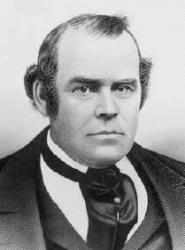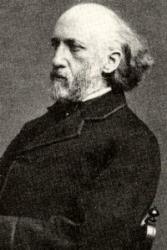1748 - 1784 Hymnal Number: d12 Author of "As near to Calvary I pass" in Songs of Zion Alline, Henry. (Newport, Rhode Island, January 14, 1748--January 28, 1784, Northampton, New Hampshire). Congregationalist/"New Light". In 1760 his family took up land near Hampden, Nova Scotia, far from any school or church; hence the spiritual experience which, in 1775, impelled him to begin preaching found him with the drive and magnetism, but without the solid grounding, of a Wesley or a Whitefield. His stress on the "new light," and the revival meetings which he conducted all over Nova Scotia had no connection with the American Revolution beyond coincidence in time; yet that was enough to alarm the authorities. He had sermons, tracts, and probably sheets of hymns printed at Halifax before the peace treaty of 1783 allowed him to cross the newly-drawn boundary safely; but tuberculosis felled him before he could go far. Rev. David McClure, in whose house he died, extracted verses from his manuscripts and published them (Boston, 1786) as Hymns and Spiritual Songs. These were used by Alline's Nova Scotia converts while, and after, they drifted into the Baptist orbit, as well as by the converts his associates went on to make in the United States, who eventually emerged as the Free-Will Baptists.
See: Bumsted, J.M. (1971). Henry Alline, 1748-1784.
--Hugh D. McKellar, DNAH Archives
============================================
Alline, Henry [Allen], born at Newport, R. I., June 14, 1748, was some time a minister at Falmouth, Nova Scotia, and died at North Hill, N.S., Feb. 7, 1784. Alline, whose name is sometimes spelt Alten, is said to have founded a sect of “Allenites," who maintained that Adam and Eve before the fall had no corporeal bodies, and denied the resurrection of the body. These peculiar views may have a place in his prose works, but they cannot be traced in his 487 Hymns and Spiritual Songs, in five books, of which the 3rd ed., now rare, was published at Dover and Boston, U.S.A., 1797, and another at Stoningtonport, Conn., 1802. Of these hymns 37 are found in Smith and Jones's Hymns for the Use of Christians, 1805, and some in later books of that body. The best of these hymns, "Amazing sight, the Saviour stands," from the first edition of Hymns and Spiritual Songs (1790?), is preserved in Hatfield's Church Hymn Book, 1872, No. 569, where it is given anonymously from Nettleton's Village Hymns, also in the Baptist Praise Book, and others. Alline's hymns are unknown to the English collections. [Rev. F. M. Bird, M.A.]
-- John Julian, Dictionary of Hymnology (1907)
========================
Henry Alline


 My Starred Hymns
My Starred Hymns







